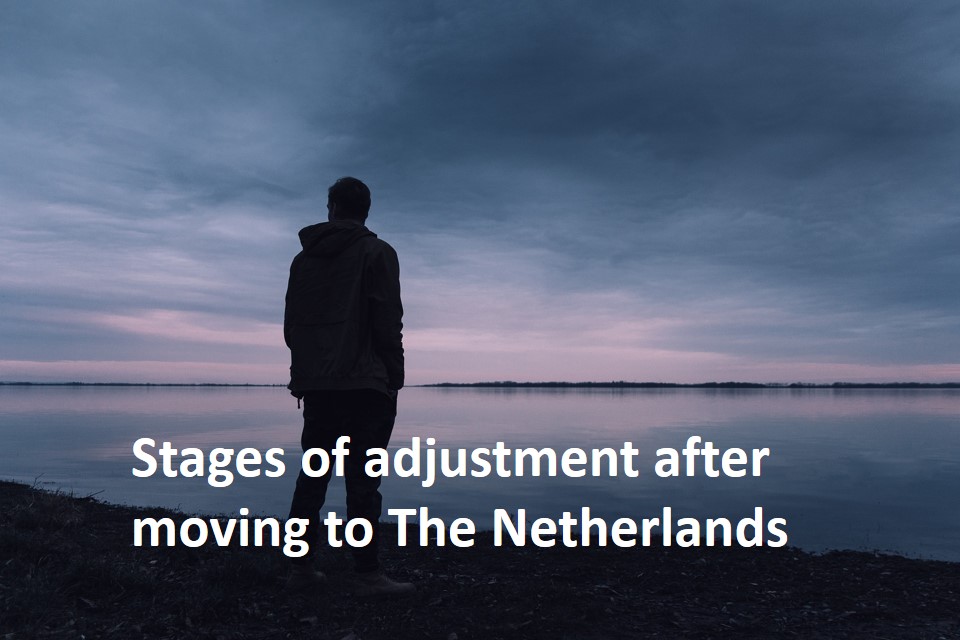
Moving to a new country for studies,  a new job or as family member, is exciting! However, adjusting to a foreign language and a different culture takes longer, and is more wearing than some anticipate. No matter how near or far you have moved away from your previous home, you will most likely notice a difference between your old and your new life.
a new job or as family member, is exciting! However, adjusting to a foreign language and a different culture takes longer, and is more wearing than some anticipate. No matter how near or far you have moved away from your previous home, you will most likely notice a difference between your old and your new life.
Some people find it easy to adjust to their new environment, whereas others struggle with adjusting and finding a sense of home. Some internationals face problems related to moving, such as homesickness and finding new meaningful daily activities. Others are reporting that they feel insecure, are sometimes ashamed of their feelings, and are afraid to discuss them even with friends and family.
Mental health survey
Recent research by Healthcare for internationals has shown that more than 50% of internationals living in The Netherlands experience mental challenges, such as frequently feeling lonely, anxious or depressed. 70% relates these feelings directly to moving to and settling in another country.
These numbers are comparable for the various groups of internationals surveyed; those that are employed, students and so-called ‘trailing spouses’ equally report mental challenges, though the causes may differ. Internationals that are employed and students may experience stress to ‘make it’ in their job or studies, while others struggle to find rewarding activities in their new setting.
Less than 20% of those experiencing issues seek help from Dutch professionals, 80% try to overcome these issues on their own or with the help of friends and family. Only 30% of those who have (had) frequent mental challenges say that they have overcome those without professional help or expect to do so.
Getting help
Internationals cite language difficulties and cultural barriers as a main reason for not using Dutch mental healthcare. Ironically there are many therapists with a foreign qualification in the Netherlands, but their services are not covered by Dutch health insurance, because they are not proficient in Dutch. Many turn to these professionals at their own cost or have skype sessions with a therapist in their home country.
Those that use Dutch mental healthcare complain that Dutch professionals often don’t take their problems seriously and when they do, having to wait 6 weeks or more for treatment to start even adds to the anxiety or stress.
Internationals report various other ways of coping with these challenges: engaging in sports or yoga, and getting support from peer groups. Working hard is a solution for some, but for others it just masks the issues.
Substance abuse
Some admit to substance abuse to feel better. Ingrid Weijnen, psychologist at H4i member U-Center, says: “When your high expectations of the relocation do not come true and you are in danger of getting stuck, or feeling depressed or anxious, people might be inclined to start drinking alcohol, using drugs or taking more medication than would be good for them, in a desperate attempt to feel better. Understandable, but they often end up in a vicious circle of mental problems. Professional psychological help, with knowledge of the challenges internationals have to deal with, should be easily available for these clients.
Stages of adjustment
A majority of internationals surveyed have overcome these issues or expect to do so in the future. Esther Kühler, psychiatrist at H4i member Kühler en Trooster explains: Even though everyone handles the adjustment to a new country in their own way, there is a cycle of change that almost all expats go through before really settling in and feeling grounded. According to the U-Curve Theory of Adjustment (Lysgaard, 1955) all expats go through four stages of adjustment:
1. Honeymoon
During this stage expats see their new country through rose-tinted glasses. The mindset they adopt is like that of a tourist: everything is new and exciting and people are keen to explore their new environment.
2. Culture shock
When the newcomers have to deal with real conditions on a daily basis (setting up house, possibly finding a job, building a social network, language problems), the second stage kicks in: culture shock. This stage is characterized by feelings of isolation and frustration and can also trigger physical (stress) symptoms. In some cases, the feelings expats experience are similar to symptoms of depression.
3. Adjustment
The third stage is the adjustment stage, in which the international is gradually adapting to the new country and is able to act more appropriately. For some people during this stage there is a tendency to ‘compare to complain’: while settling in there is a constant tendency to compare the new environment to the life they had before.
4. Mastery
In the last stage, which is called the stage of mastery, the international is able to function effectively in the new culture.
The duration of the cycles most internationals go through differ greatly from person to person. The average time to adjust to a new culture (and go through all of the stages) is thought to be around nine months.
Improving mental healthcare for internationals
H4i is working with its members to provide mental healthcare that better meets the needs of internationals. If you are interested to contribute to this effort please let us know.
